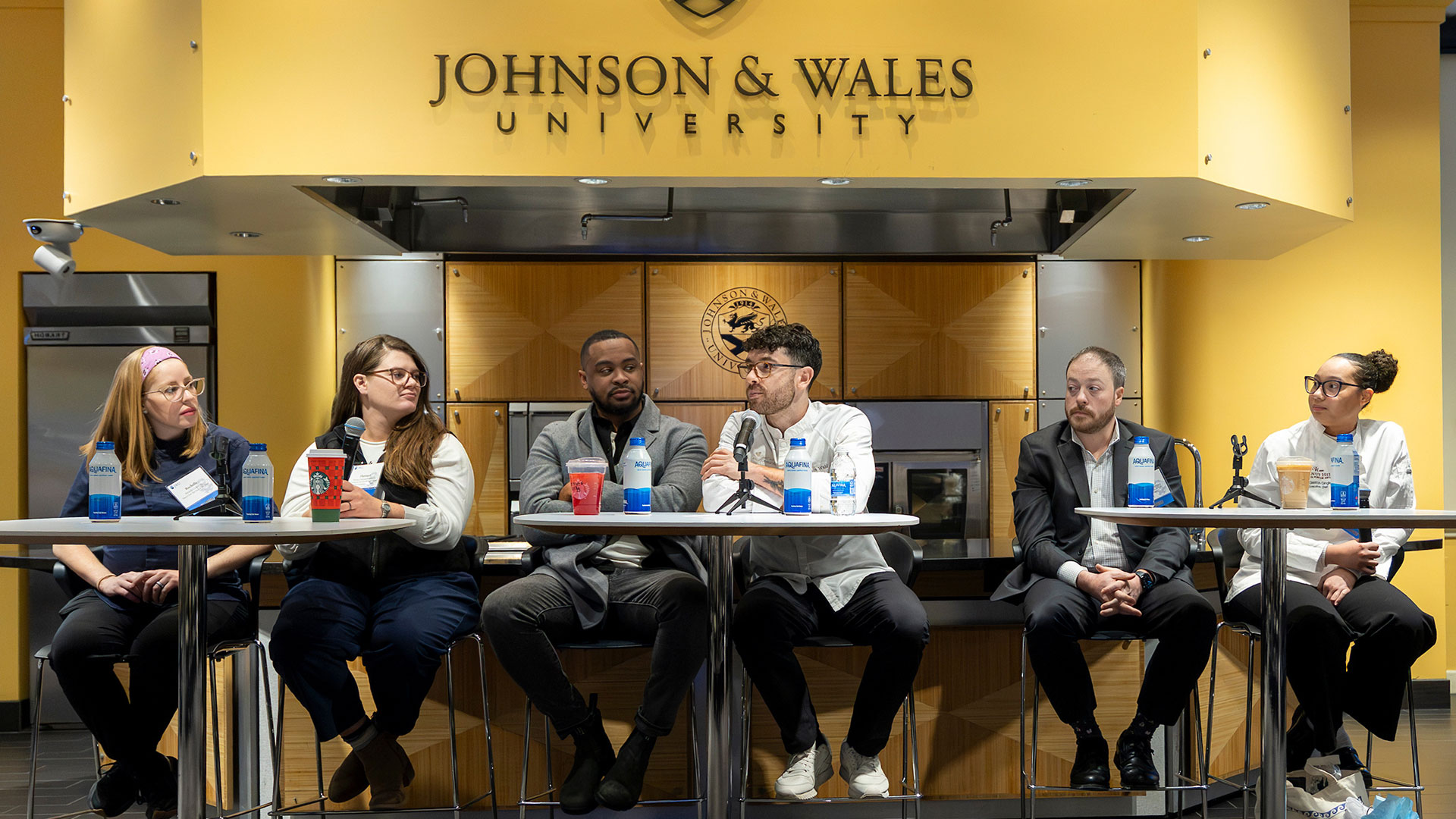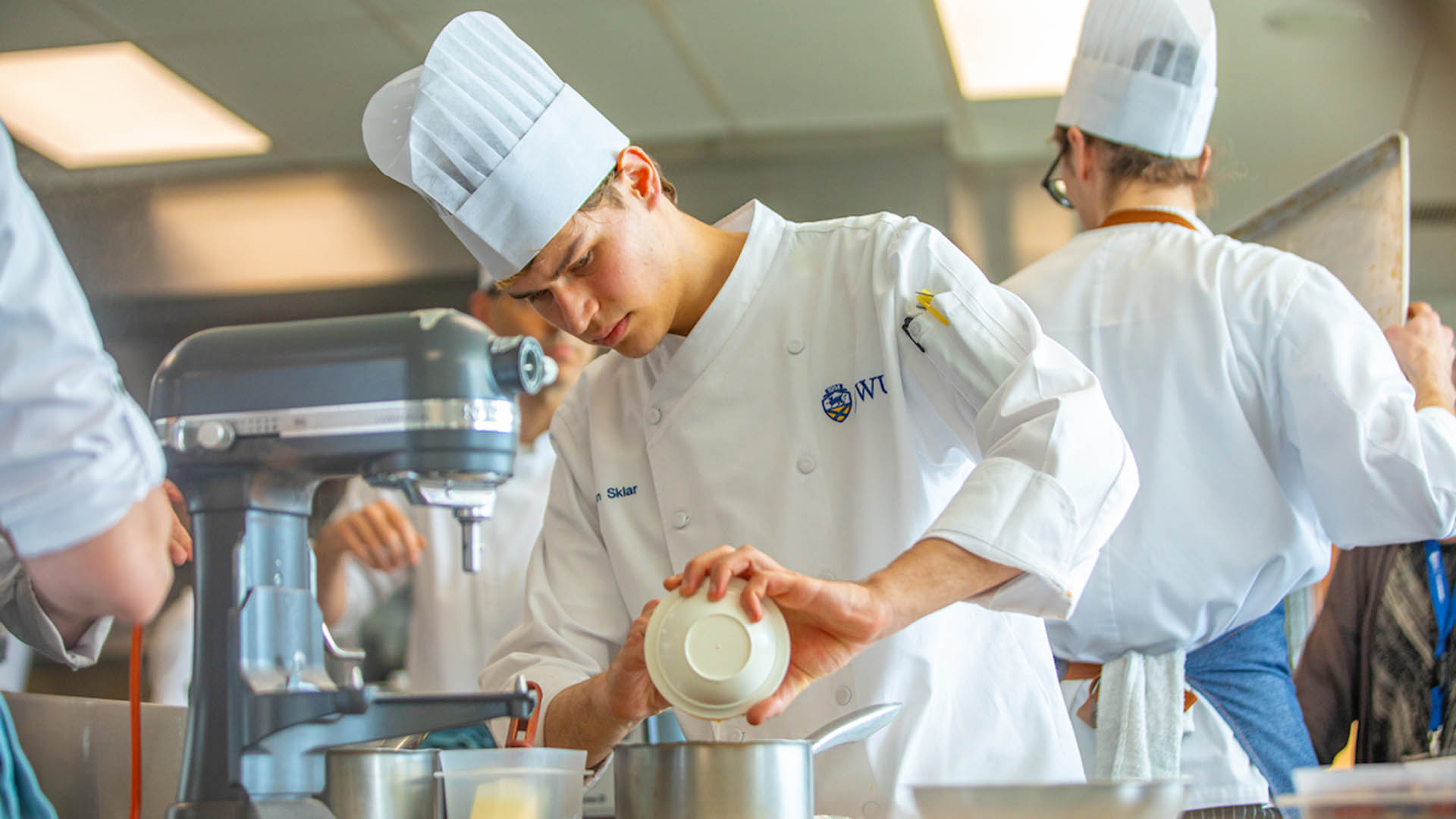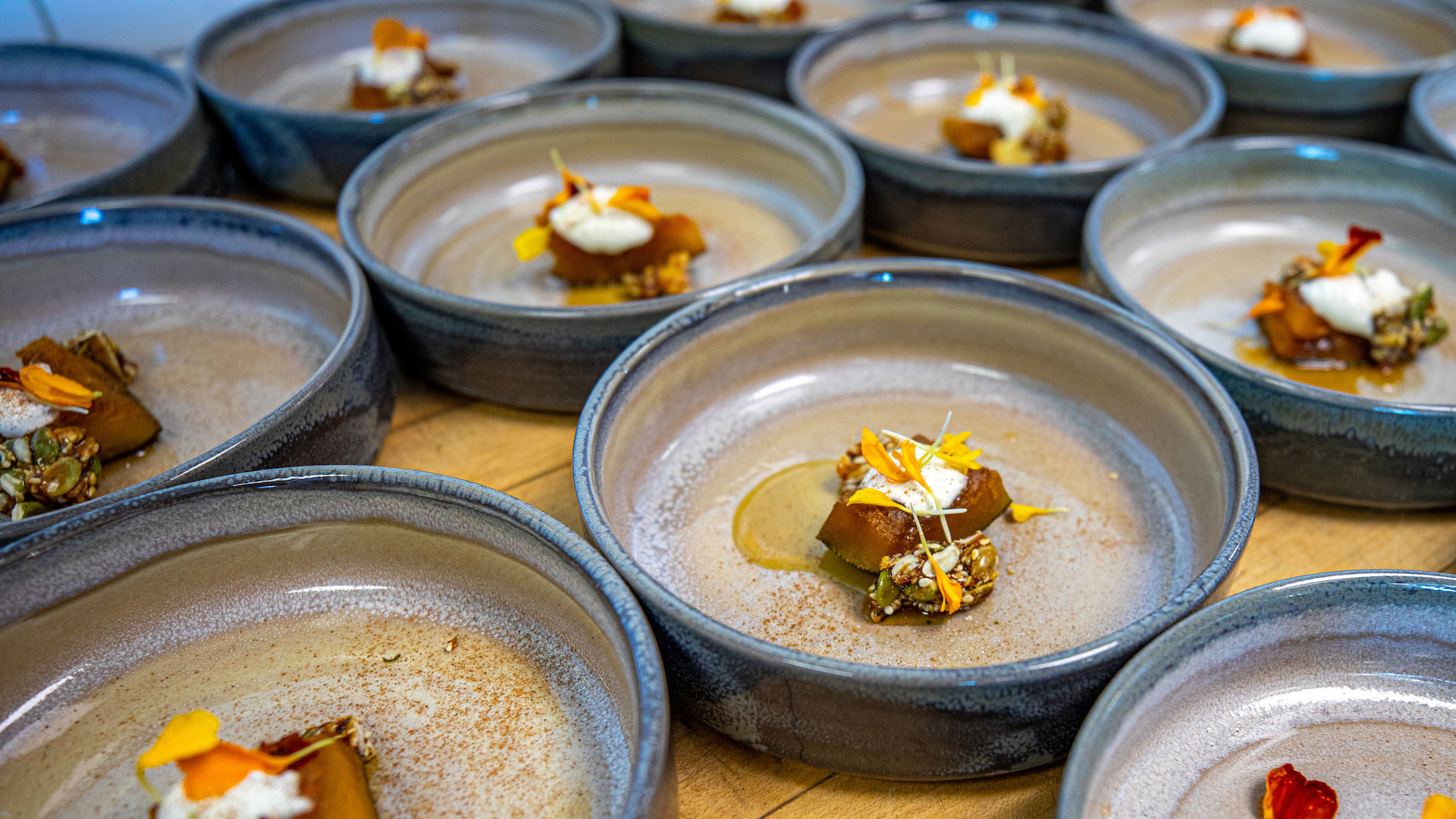What is the Difference Between Culinary Science & Food Science?
While food science and culinary science both have ‘science’ in the name, the two fields are quite different. Food science concentrates solely on the biochemistry, biology and chemical engineering of food while culinary science integrates both culinary arts and food science. Continue reading to see which major is right for you!
What is Food Science?
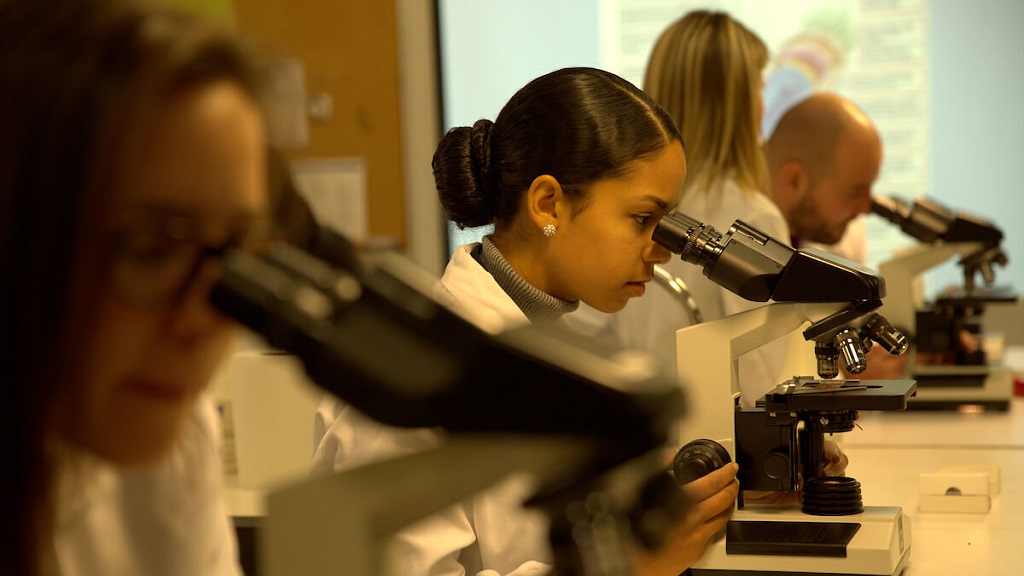
Food science is a multidisciplinary field that uses science to uncover ways to create new food and improve the safety, preservation, development and storage of existing food products. Let’s explore the multidisciplinary approach used in food science:
Food microbiology is the process of examining microorganisms that can contaminate and modify food including yeasts, molds, bacteria, viruses and parasites. Microbiology is vital to the preservation, processing, and production of food as well as all around food safety. For instance, although hygiene and traceability help slow down microbial growth, food can still have a high level of pathogen microorganisms.
Food physics is the study of how food dissolves, stretches, breaks, and flows, and how temperature affects the physics of food.
Food chemistry is used to analyze what chemicals are in food, their effect on our bodies, and how they change over time. By researching chemical compounds, scientists are able to determine what food has chemicals with high toxicological properties. They can then provide this information to the people who regulate chemicals in food to limit their presence.
Food engineering uses engineering principles to put systems in place to ensure foods are packaged and processed safely. Food engineers make sure store shelves have boxed, bagged and canned foods that are safe to eat.
JWU offers students the opportunity to explore food science through our Applied Food Science Bachelor's Degree in Charlotte. In two years, students will learn about the makeup of food, preservation, packaging, and distribution in keeping food nutritious and flavorful.
Food Science Careers
Food science majors aren’t limited to a career as a food scientist. In fact, there are numerous career opportunities with this degree.
Food scientists research and establish shelf life by studying how microorganisms affect food, what physical attributes change during storage, and which packaging is best. They’re also responsible for creating food processing and quality assurance protocols and streamlining manufacturing and production
Sensory scientists research how consumers interact with food products. By analyzing consumer interactions, sensory scientists can make data driven decisions to improve food as well as collaborate with the development team to create new products.
Food quality assurance managers are responsible for taking samples of contaminated materials and providing reports on these results. They also review audits conducted by third party inspectors.
Learn More About Food Science Careers
What is Culinary Science?
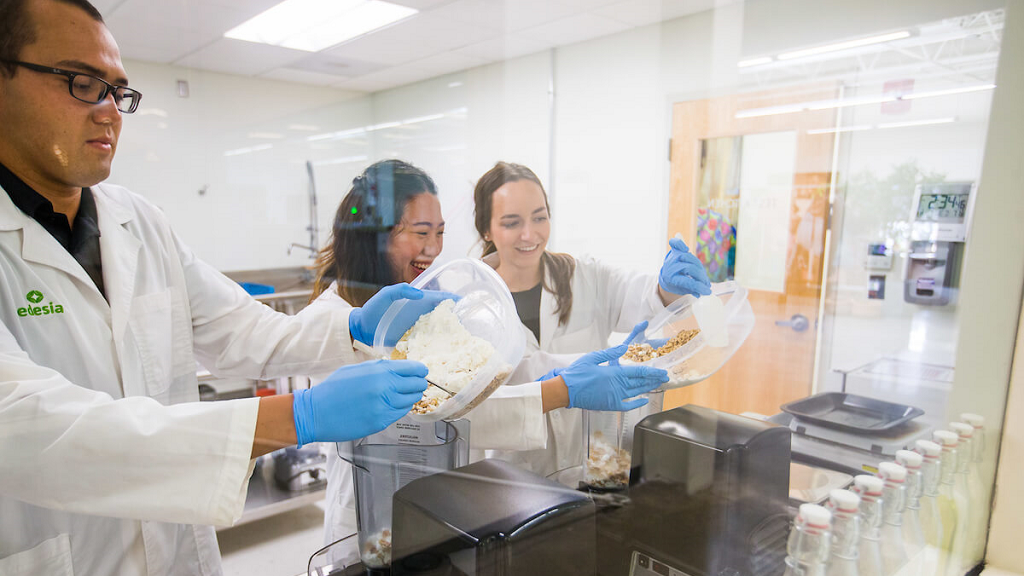
Culinary science offers a unique blend of culinary arts and food science. Students in this field not only learn a variety of important cooking techniques through first-hand experience in the kitchen, they are also taught about the science of food, which allows them to go on to create food products to meet the needs of consumers. Being able to cook professionally and understand the scientific composition of ingredients puts culinary science students at a wonderful advantage.
Culinary Science & The Food Industry
Traditionally, the food industry hired food scientists and taught them how to conduct food product development while on the job. However, food scientists did not have culinary training and usually had very little product development experience. This led to a lack of creativity and flavor in many food items found on grocery store shelves.
In the late 1990’s, chefs began to look for jobs in the food industry in order to transition from the long days, nights and weekends in food service. The food industry quickly realized how important chefs are in food product development.
Culinary science now plays an integral role in food product development and culinary science chefs are huge contributors to the food industry.
Culinary Science Careers
Culinary science programs prepare graduates for careers as product developers, ingredient specialists, test kitchen chefs, research chefs and many others. Take a peek at some of the exciting career opportunities.
Product developers are tasked with testing new products, researching competitor food products, enhances existing food products and documents ingredients and processes.
Ingredient specialists analyze the physical and chemical makeup of ingredients, ensuring they follow food safety and quality specifications.
Test kitchen chefs are responsible for preparing ingredients for new recipes that others will be following. Chefs need to accurately measure ingredients, pay close attention to timing and temperature and create variations of a recipe. This role uses techniques learned in food science as well as cooking and baking skills from culinary arts.
Research chefs typically work in a food research laboratory where they experiment with food to discover taste profiles. Research chefs create these taste profiles to make them shelf-stable so they can be easily recreated and mass produced.
About JWU’s Culinary Science & Product Development Degree
Culinary Science and Product Development at JWU provides students the unique opportunity to dive into the world of culinary arts first and then integrate food science into their studies. JWU has been training and placing graduates in the food industry since 2001, and the industry now seeks chefs for their up-front product development work.
Students start by learning about the fundamentals of culinary arts and then enroll in a full semester internship at a restaurant. From here, they are introduced to food ingredient technology, food product development and food processing.Throughout their courses at JWU, students also learn the business side of food product development.
Browse JWU's Culinary Science Courses
What Makes JWU’s Program Unique
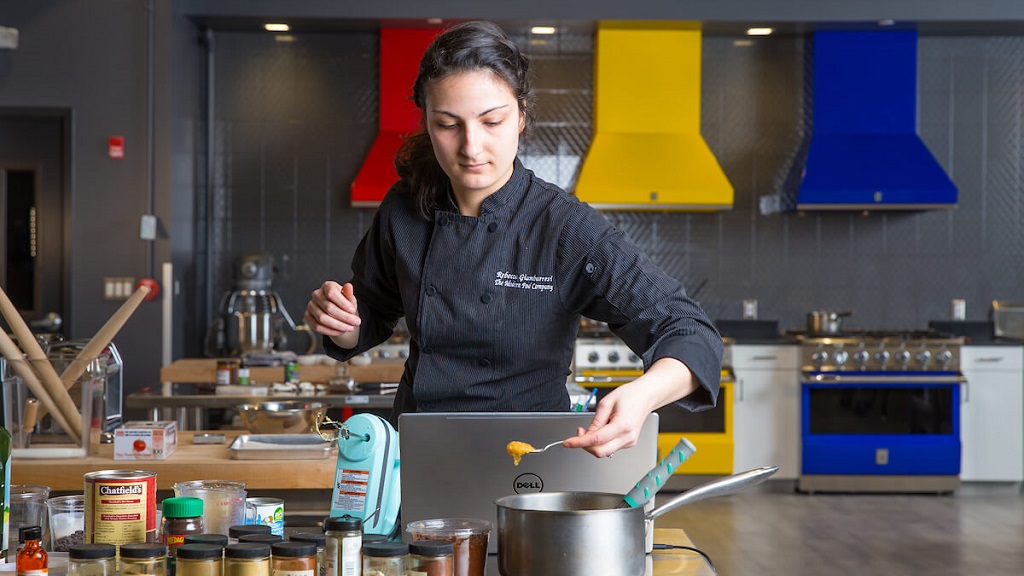
Traditional food science programs focus entirely on science and offer courses such as food chemistry, food processing, food analysis and food process engineering. These types of courses are excellent at preparing students for careers in research, or the manufacturing and technology side of the food industry. However, food science programs do not incorporate culinary arts which means students are not gaining hands-on experience in the kitchen.
Launch Food Innovation Design Lab
Explore JWU's Food Innovation Design Lab
While graduates of food science programs are knowledgeable in the science and manufacturing aspect, JWU’s culinary science graduates have an in-depth knowledge of both the science of food and the processes that are necessary to manufacture food. Our culinary science program teaches students how to make food and bring it through the technical process of getting it to market.
Explore JWU's Culinary Science Program
